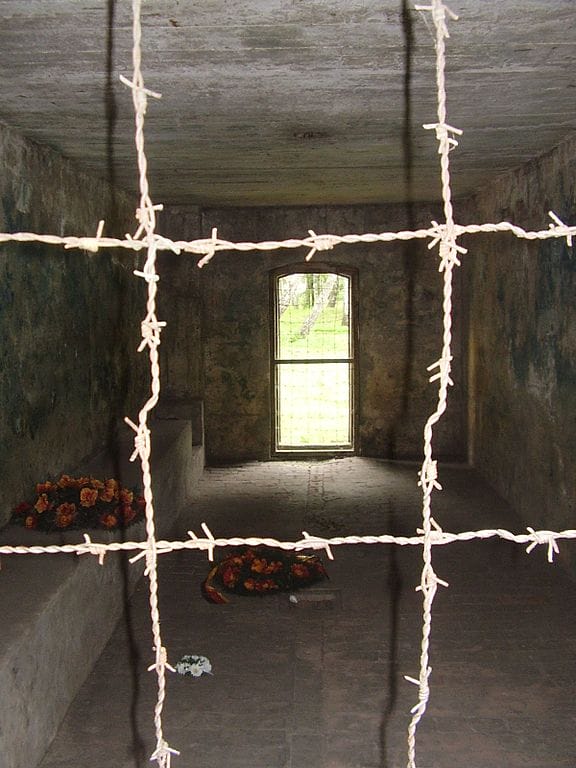Poland’s interior minister has instructed prosecutors to follow up on an investigation by groups representing Holocaust survivors on a video featuring nudity that was filmed at a former death camp in the country.
Mariusz Błaszczak transferred the dossier on the video that was filmed inside the gas chamber at Stutthof, he said Friday on Twitter. Two days earlier several groups, including the Simon Wiesenthal Center, had sent a letter to Polish President Andrjez Duda noting the video was traced back to Stutthof and demanding to know who gave permission for the filming.


The video shows several naked men and women playing a game of tag inside what its creators said was a gas chamber without divulging further details. The Museum of Contemporary Art in Krakow displayed the video in 2015, causing controversy.
Following protests by Jewish groups and community leaders, the Krakow museum pulled the exhibition but then reinstated it, defending it as falling under freedom of artistic expression. The installation, called “Game of Tag,” also was displayed at an art museum in Estonia before being pulled following protests.
Research that identified the location as Stutthof led the organizations that co-signed the letter to demand to know whether the artists did “obtain permission from the Stutthof administrators to make this video, what rules exist for proper conduct at the site, how these are enforced” and whether an investigation of the circumstances of the making of the video had been carried out, the Simon Wiesenthal Center wrote in a statement about the letter.
Despite frequent controversies connected to the commemoration of the Holocaust in Poland, it enforces strict limitations on filming and conduct at the dozens of memorial sites and historical monuments that were left in its territory after World War II.
Piotr Tarnowski, the director of the Stutthof Museum and Memorial on Friday called for the video to be “destroyed.” He also said the film, directed by Artur Żmijewski, was made in 1999.
Tarnowski said a predecessor of his gave permission for filming based on a script that did not feature some of the elements filmed, and that she rescinded the permission after seeing the result. Żmijewski, Tarnowski said, promised to destroy the material but kept it instead.
The publication of the letter prompted an outcry in the Polish media and an intervention by Jonny Daniels, founder of the From the Depths commemoration group, with the ministry to take action and potentially prosecute the artists responsible for the film.
Błaszczak’s office told From the Depths in a statement that he regards the film as an “insult to the memory of the victims of the Stutthof Concentration Camp, who lost their lives in the gas chamber.”
Some 115,000 prisoners passed through Stutthof, which was set up in 1939 as a camp for political prisoners. Of those, 65,000 perished, while another 22,000 were transferred to other concentration camps. Large numbers of Jews began arriving in Stutthof in 1944.












Only a smiling visitor here to share the love (:, btw great design .